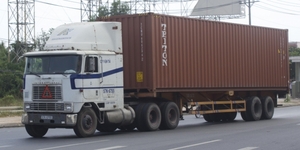In a motor vehicle accident involving a commercial truck, it may be clear the trucker was at fault and caused the crash. What is less clear is who is legally liable.

Employers are usually responsible for wrongful acts of an employee or agents, provided those acts were not intentional and were committed in the scope of employment. The legal principle upon which this falls is that of respondeat superior, which is Latin for “let the superior make answer.”
But the reason this may not always be applicable is because truck drivers are often not employed by the company that owns the truck. Rather, they are an independent contractor. Additionally, there may be a separate company that owns the trailer and yet another company whose goods are being hauled. Each of these entities contract with each other to make deliveries – and make for a complicated web of potential liability.
This is why it’s imperative in any Fort Lauderdale truck accident case to consult an established legal firm. These tend to be complex cases, and it’s important your attorney is familiar with how to pursue such claims.
The recent case of Gonzalez v. Ramirez, before the Texas Supreme Court, reveals how determining liability in a truck crash can be convoluted by these contracts.
According to court records, defendant is the owner of a farm who agreed to harvest silage from another farm and arrange for it to be hauled to a distributor. In order to accomplish this job, the farm owner contracted with a number of companies, including a trucking company called 3R. The farm owner’s harvesters would load the trucks, signal to drivers when they were full and then the driver would deliver the load to the distributor.
In October 2009, several 3R trucks were brought to transport the silage. One of those was driven by a new truck driver. On that very first ride, the truck’s tire blew out. The driver lost control of the truck, veered into oncoming traffic and slammed head-on into a vehicle with a woman and her 14-year-old daughter. The truck driver, the woman and her daughter were all killed.
Lawsuits were filed both by the trucker’s family and the deceased girls’ father, ex-husband of the woman killed.
Claims were filed against the trucking company for vicarious liability, but also against the farm owner for negligent overloading and negligent hiring. Plaintiffs also sought to hold farm owner accountable as a motor carrier.
Trial court granted defendant’s motion for summary judgment based on a lack of evidence to prove the farm owner had any control over the transportation of the truck or that he could be held liable under either federal or state motor carrier regulations.
An appellate court reversed, but the state supreme court reversed again, upholding trial court’s findings.
Families were able to secure an out-of-court settlement from the trucking company/owner, but they were not successful in securing a judgment against the farm owner.
This case shows there may be multiple chains of liability in these cases, which is why it’s important to thoroughly explore all avenues before deciding how to best proceed.
Call Fort Lauderdale Injury Attorney Richard Ansara at (954) 761-4011. Serving Broward, Miami-Dade and Palm Beach counties.
Additional Resources:
Gonzalez v. Ramirez, May 8, 2015, Texas Supreme Court
More Blog Entries:
Siruta v. Siruta – Husband Sues Wife for Child Car Accident Death, May 12, 2015, Fort Lauderdale Truck Accident Attorney Blog
